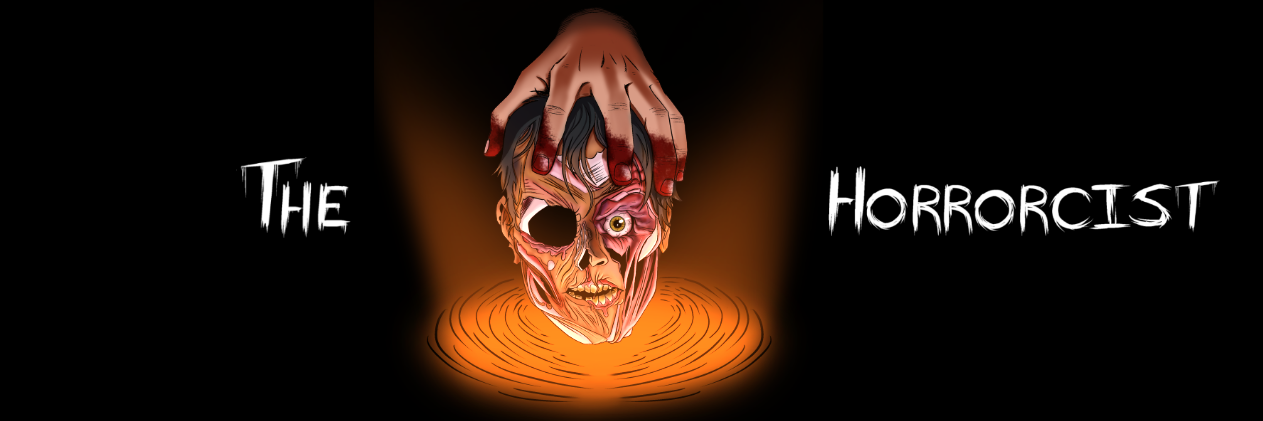Fantasia Film Festival 2020’s Sanzaru is an understated ghost story focussing on the breakdown of family unites through both American and Filipino cultures. However, its supernatural elements are so implied and suggested that it could not even be a ghost story at all.
From the start it’s Xia Magnus’ direction that informs us that this is even a horror film at all. The film opens with a shot of a weathered cematary and a crescendo of overlapping voices before transitioning into flashing lights and a screeching high-pitched sound. Everything about the beginning of the film is designed to unsettle the viewer from the outset, informing them that the film will be uncomfortable.
And indeed it is. The story itself is an uncomfortable one to watch as we follow the lives of Filipino carer Evelyn, played brilliantly here by Aina Dumlao as she works as a live-in carer for Dena, an American family matriarch declining due to dementia, unflinchingly performed by Jayne Taini. Evelyn’s nephew Amos turns up and Dena’s two children Susan and Clem occasionally pop-up, although Clem is much more present as he lives on the property in a trailer.

But there are other elements that make Sanzaru a creepy and unsettling affair. The cinematography is slow and purposeful, there are lots of shots of empty spaces and mundane household objects and buildings, all invoking classic gothic horror. The film’s score is also perfect at ratcheting up dread and tension with long-silences mixed with melancholic and abstract piano notes and more of the aforementioned screeching high-pitched ominous noises.
All of this helps to make Sanzaru, at its core, an effective slow-burn ghost story as we see the characters slowly start to unravel under the weight of the apparent haunted house, there are regular power cuts, Dena’s dementia worsens with some truly shocking, yet wholly authentic moments, birds and smoke detectors don’t stop chirping even after death and voices are regularly heard through the houses intercom and radio.
But the film is also an unravelling mystery. Sanzaru is the Japanese term that references the mythical trio of monkeys that we’re all familiar with – the phrase ‘see no evil, hear no evil and speak no evil.’ Both sets of families within the house are displaying this by denying an unwanted truth, and as a result their secrets become their ghosts, they are haunted by the tragedies of the past.
This is why, despite there being some overtly surreal and abstract supernatural sequences, it could be argued that Sanzaru isn’t a ghost story at all, and that the symptoms of haunting Dena and Evelyn experience are simply psychological manifestations of the guilt they carry. For example, Amos knows that Evelyn is keeping a secret from him, and we see his physical condition gradually worsen as it weighs down on him, eventually leading to a very well-done tension-building scene that leads to him collapsing. It is only when Evelyn tells him the truth that he recovers.

Whilst Dumlao’s lead performance is the patient and calm Evelyn is a standout, the rest of the cast are great, Jon Viktor Corpuz as Amos and Justin Arnold as Clem have a lot of the emotional heavy lifting to do. Arnold’s tender performance during Clem’s monologue in the trailer, revealing yet another unwanted truth, and subsequently touching love scene with Evelyn is particularly great.
Taini’s Dena is also a brilliant anchor to the whole thing, when the characters feel like they’re beginning to settle into the house; Dena has another episode of increasing severity. First she has a fall, then she soils herself, then she badly cuts her leg open, causing blood to gush out of her. Taini doesn’t exaggerate these moments, nor does she underplay them and as a result Dena’s dementia becomes one of, if not the, most horrifying elements of the film, both in the literal sense and also because we’re never quite sure if the things that are happening in the house are actually happening.
There’s nothing overtly scary in Sanzaru, but it is a thoughtful and unsettling meditation on past trauma, the burden of unwanted truths and secrets and the breakdown of family units. You won’t jump out of your seat but you will be uncomfortable and will understand the nuanced horror in the character’s very real situations. It might not stick the landing with the ending, but it certainly sticks the feeling that it leaves you with long afterwards.
For more reviews and interviews, check out our Fantasia Film Festival 2020 coverage here






